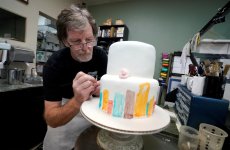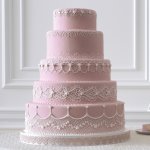RavenSky
The Doctor's Wife
He refuses to design custom cakes for Halloween, divorce celebrations, bachelor parties or other events that conflict with his religious views.
Since none of those are "protected classes", there is nothing anyone can do about it.
But what happens when his interpretation of his religion prompts him to refuse to bake cakes for a black child's birthday party or a Jewish Bar Mitzvah? How are those any different than a party for a newly married gay couple?
The bakery has turned away several other same-sex couples on the same grounds, including a lesbian couple who wanted to buy cupcakes for a commitment ceremony.
So much for the claim that it is all about the artistry of the wedding cake specifically
http://www.nybooks.com/articles/2017/12/07/let-them-buy-gay-wedding-cakes/
Likening its cakes to the art of Jackson Pollock and Piet Mondrian, Masterpiece Cakeshop claims that they deserve protection as free speech no less than Pollock’s canvases. But whether the cakes are artistic is beside the point. As an individual artist, Pollock would not have been subject to a public accommodations law and could have chosen his customers. But if he had opened a commercial art studio to the public, he, too, would have been barred from refusing to sell a painting because a customer was black, female, disabled, or gay.
The fact that a business’s products may be expressive does not give it the right to discriminate. Newspapers and book publishers, for example, are indisputably engaged in core First Amendment activity, but that does not mean that they can refuse to sell to (or hire) Mormons or women. As the Supreme Court stated in 1945, “The fact that the publisher handles news while others handle food does not…afford the publisher a peculiar constitutional sanctuary in which he can with impunity violate laws regulating his business practices.”7 If newspapers can be required not to discriminate, then surely bakeries can as well—no matter how artistic their confections may be.
Masterpiece Cakeshop invokes these cases, but they are plainly different. The St. Patrick’s Day parade organizers and the Boy Scouts are private groups that exist for the purpose of communicating ideas, not businesses serving the public in the commercial marketplace. Private organizations engaged in speech have a First Amendment right to choose their messages and their leaders. Businesses open to the public, by contrast, have no right to choose their customers.
Last edited:



